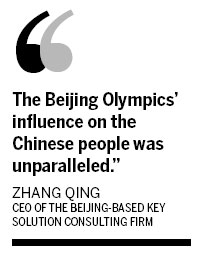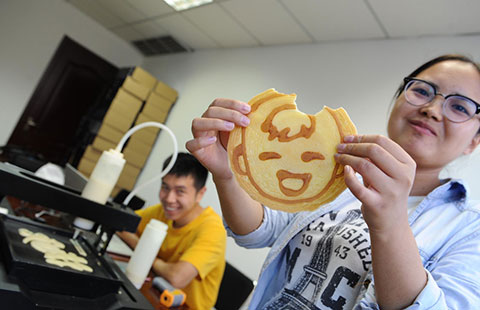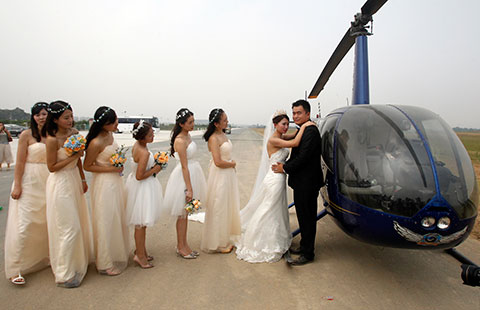Sports firms bet their shirts on London
By Liu Jie (China Daily) Updated: 2012-06-27 10:42The Hong Kong-listed Li Ning warned the market on June 12 that revenues and profits are set to decline this year, and that the number of new product trade fair orders for the full year will decrease from last year.
In January, the US private equity fund TPG Capital and the Singapore sovereign fund GIC both agreed to invest around $115 million in the Beijing-based Li Ning through a convertible bond, giving much needed capital to the sportswear maker to develop new brands and roll out new stores, as well as for working capital.
However, the much needed improvement has yet to materialize.

In 2011, sales revenues fell 5.8 percent to 8.93 billion yuan ($1.4 billion). Profits dropped to 631 million yuan from 1.54 billion yuan in 2010, and 1.34 billion yuan in 2009.
Its stock price fell more than 60 percent during 2011, and a further 20 percent during the first half of this year.
Li Ning's slowdown emerged at the end of 2010, when it created a new logo and slogan, aimed at building it into an international brand targeted at the generation born after the 1990s.
Meanwhile, it streamlined its chain of stores, closing some of its small sites and opened new "sixth-generation stores" targeting young consumers.
The Li-Ning brand had more than 7,900 stores around China by the end of 2010, fewer than a target called for at the beginning of that year.
The fortunes were a sharp reversal of its heydays only a couple of years before.
In 2008, its sales revenue jumped a huge 53.8 percent year-on-year to 6.69 billion yuan, and that pace continued until 2010, when its sales revenue peaked at 9.48 billion yuan, exceeding Adidas AG to become the No 2 sportswear brand in China - only after Nike Inc.
Li Ning, the sports star, himself attributed the golden times to the company's 2008 Olympic sponsorship.
"Our group has successfully seized the unprecedented opportunity (of the 2008 Beijing Games) to promote our integrated marketing strategy, which contributed greatly to our brand image," he said.
Li Ning Co Ltd was the uniform supplier for the Chinese national gymnastics, diving, table tennis and shooting teams, as well as official supplier to outfit both Spain's and Argentina's basketball teams and the Spanish and Swedish delegations to the Games.
It also signed an agreement with China Central Television's sports channel, under which all broadcast anchors and reporters wore Li Ning clothes until the end of 2008.
"The Beijing Olympics' influence on the Chinese people was unparalleled," said Zhang Qing, CEO of the Beijing-based Key Solution consulting firm.
"Chinese audiences will pay attention to the London event, but not as enthusiastically as they did to the Beijing session."
"Moreover, given the seven-hour time difference, the marketing power of this session's sponsorship may be rather limited."
- China stock market stabilizes after roller coaster ride
- Top 10 most expensive schools in Shanghai
- China to introduce circuit-breaker for stock market
- Commercial giants forge online and offline partnership
- Huawei eyes high-end market with new handset
- Chinese cosmetics use global expansion to elevate status at home
- PBOC governor says stock market correction roughly in place
- Winners of '2015 IFA Product Technical Innovation Award' released

















